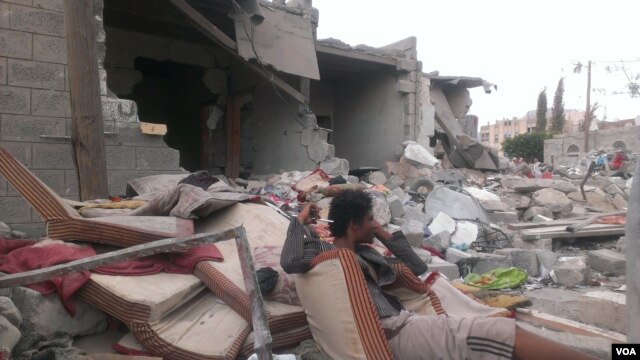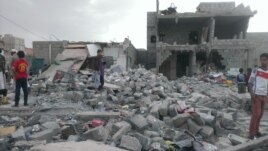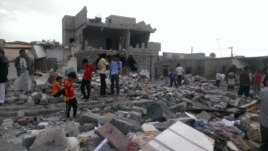Date: Mon, 12 Oct 2015 22:02:14 +0200
After more than six months of bombings, aid workers say Yemeni blacks - roughly 20,000 people in the capital alone - have become invisible victims of a war in which they have no side.
“They are streets cleaners, simple people,” said Sheik Majid al-Jamal, 35, a local community leader in the Sawan district in Sana’a. “The ground is their mattress and the sky is their blanket. They work either as streets cleaners or collect used plastic bottles. Women beg for money.”
Recent air strikes that have killed Yemeni blacks have not been near military installations or against them for political reasons, he said.
“They never affiliate with political parties. Their jobs as cleaners are their only political loyalties,” he explained.
Traditionally known as the "Akhdam" which translates to "the servants," humanitarian workers in recent years have called the group the “Muhamasheen” or the “marginalized ones.” And their communities, according to the United Nations children’s agency, are among those hardest hit by Saudi airstrikes and the ongoing civil war.
“UNICEF believes that Muhamasheen communities have been severely impacted by the conflict due to their very poor living conditions and lack of tribal and social support mechanisms,” said Buthaina al-Iryani, the agency’s social policy chief in Yemen, by email.
Many families across Yemen are gathering in traditional villages, trying to avoid the airstrikes and battles in the cities. Muhamasheen families often live in a kind of permanent state of semi-homelessness, however, settling on government lands in makeshift homes made of found material, like blankets and tires.
When an airstrike hits them, they have nowhere to run, and no way to recover.
Personal loss
Al-Jamal lost seven relatives in a July airstrike that killed more than 30 people. Fifty others were wounded and more than 100 families displaced.
“We were hit by a rocket during Ramadan,” said al-Jamal. “I lost my son, my grandmother, my brother, and my cousins.”
“My ten-year-old daughter Kefayah was killed in the last attack, and my house was completely destroyed,” said Abdullah Mohammed, a 29-year-old street cleaner.
Mohammed now lives with six other adults and at least 10 children, sharing three tiny rooms with no running water or electricity. “I am homeless,” he added.
Larger crisis
Al-Jamal and Mohammed's tragedy comes amid a humanitarian crisis in Yemen so overwhelming that aid organizations have called it “catastrophic.”
“Some 4,500 civilians have reportedly been killed or injured by explosive weapons in Yemen during the first seven months of this year,” said U.N. Under Secretary General for Humanitarian Affairs Stephen O’Brien in a statement on Thursday.


